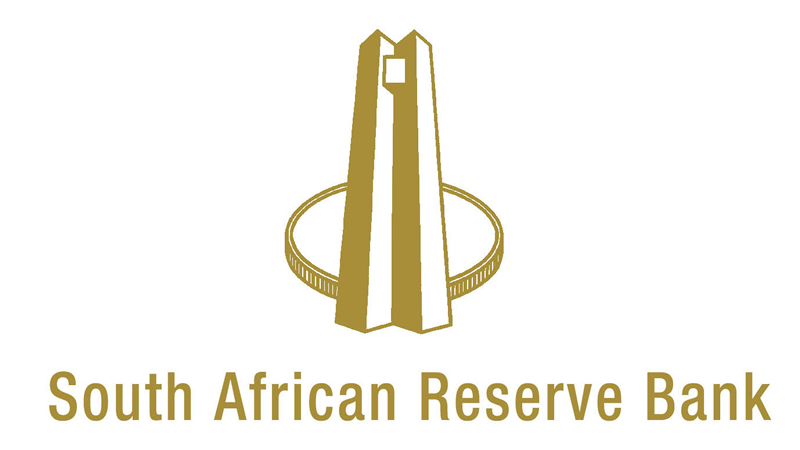With streaming platforms, next-gen gaming, and hybrid lifestyles reshaping how we consume entertainment, the humble TV is slowly being overtaken by a bigger player:…
Reserve Bank changes to IP exchange have had no impact – venture capitalist

While intellectual property (IP) attorneys say changes instituted a year ago by the Reserve Bank have helped speed up IP exchange control approvals, a leading local venture capitalist believes it is no easier than before to get IP transferred out of South Africa.
“The SARB (SA Reserve Bank) continues to create blockages, such as randomly preventing local investors from investing overseas (as startups globalise for instance) due to arbitrary conditions. It’s still all the same,” 4Di Capital founder Justin Stanford told Ventureburn in an email last week.
This, as last week Silicon Cape chairperson Sumarie Roodt told Ventureburn that she had not seen any difference following the changes to exchange control approval made last year.
Read more: Silicon Cape to engage local tech community to help forge new strategy
The changes follow an announcement in the Budget speech by then minister of finance Pravin Gordhan in February last year and pertain to the Reserve Bank’s Currency and Exchanges Manual for Authorised Dealers. The changes allow some exchange control approvals to be obtained from authorised dealers rather than from the Reserve Bank.
In 2012 the Exchange Control Regulations amended the definition of “capital” to include registered and unregistered intellectual property, which means that there needs to be Reserve Bank approval before intellectual property is transferred from a South African entity to a foreign entity.
The Reserve Bank continues to create blockages, says venture capitalist Justin Stanford on IP exchange control rules
Aalia Manie, a partner at Webber Wentzel, said the introduction of authorised dealers had helped to bring down the time that IP transactions involving unconnected parties are concluded, from 12 to three weeks.
While the Reserve Bank could not say how many applicants have used the services of authorised dealers since last year, Manie said only that she had recently helped to conclude three or four “exceptional applications” that the Reserve Bank was willing to consider or approve. These were not via authorised dealers but performed by the Reserve Bank itself.
This she added was “often on an expedited basis, despite not necessarily being permitted on the face of the rules. “This is very important – it shows a helpful stance,” she added.
She added that the Reserve Bank’s change last month to loop structures in connection with IP transactions would further assists startups looking to source funding offshore.
Under loop structures rules a South African investor can’t invest in a local subsidiary if they hold between 0% and 40% of shares in the parent offshore company. Previously the threshold was set at between 10% and 20%, she pointed out.
“That being said, there are more steps that can be taken — there is always room for improvement — and we have provided recommendations to the regulator in this respect,” she said. She added that a challenge is that the exchange control rules are complex and the country doesn’t have enough lawyers to assist applicants with applications.
‘Transactions with connected parties unlikely to be granted’
Nick Pemberton, an attorney with Von Seidels, however noted that if there is a direct or indirect relationship between a South African entity and foreign entity (that is, the transaction is not conducted at arm’s length), an authorised dealer will not grant the approval.
“The request for approval needs to be submitted to the Reserve Bank by the authorised dealer, and the request is unlikely to be granted unless there are special reasons for the transfer.
“If a local subsidiary wants to transfer its intellectual property to a foreign holding company, in my experience, approval will only be granted if some benefit to South Africa can be shown.
“As a general rule, if one of the main reasons for the transfer is to avoid tax, the transfer will not be approved,” he said.
He said adding this additional layer of risk and bureaucracy means that foreign investors are less likely to put money in South African startups. Referring to a change that the Reserve Bank made that came into 2014, he said the limited relaxation of the exchange control rules for particular unlisted companies was an attempt to mitigate this problem.
Not one company approved
The Limited Relaxation of Exchange Control Rules for Unlisted Technology, Media, Telecommunications, Exploration or “Other Research and Development” Companies was introduced on 27 February 2014.
However, he said the process is “overly complicated”. He said he is not aware of any companies that have used this mechanism, or how it works in practice.
“If an innovation is good enough, there’s a higher chance of the innovators just leaving South Africa to develop their ideas,” he said.
Ventureburn asked the Reserve Bank whether the dispensation is only something for big companies to take advantage of — as the measure compels applicants to, within two years of successfully listing offshore, list on the South African stock exchange.
“No, the policy dispensation was geared to encourage innovation and expansion by small technology, media and telecommunication companies to raise the necessary loans and capital offshore,” Ziyanda Mtshali, a media co-ordinator at the Reserve Bank said.
Entities must register with the Reserve Bank’s Financial Surveillance department. Yet when Ventureburn asked how many had been registered, Mtshali said not a single registration has yet been made — and that not a single application for approval, has been lodged with the Reserve Bank.
*Editor’s note (28 March 2018): Webber Wentzel’s Aalia Manie and Silicon Cape chairperson Silicon Cape chairperson Sumarie Roodt subsequently wrote to Ventureburn to take issue with a number of statements they were each quoted as saying.
Roodt claims she was “misquoted” when she told Ventureburn that she had not seen any difference following the changes to exchange control approval made last year. She said Ventureburn had neglected to add that she is not “intimately involved” with exchange control regulations and therefore had referred Ventureburn to source comment from those such as Manie, who are more in the know.
Manie, referring to the time the Reserve Bank used to take to process exchange control applications related to IP, she in the worst case scenario such applications in the past took 12 weeks. “I’ve received approvals from authorised dealers in the space of a week at times.”
She said her reference to the three to four applications being submitted to the Reserve Bank, was not reference to IP-related applications via authorised dealers – but rather for “exceptional applications” that the Reserve Bank was willing to consider or approve,”often on an expedited basis, despite not necessarily being permitted on the face of the rules. This is very important – it shows a helpful stance,” she said.
In addition, she said the previous threshold for permissible loops was not 10%, but rather between 10% to 20%. “(It’s) very important to note that there was a minimum and a maximum. The minimum is now 0% and 40%. This has already had an impact on structuring advice that our firm is issuing currently,” she said.
She noted that the Reserve Bank is moving in the right direction in a relatively short space of time (18 months since their initial engagement in August 2016). “This has had a real tangible impact on startups in my experience over the last year. Sentiment has changed among many, but the general view is that more can be done,” she said.
On the issue of whether there are a sufficient number of lawyers in the country to assist applicants, Manie said it was rather that there are not enough exchange control specialists in the country with enough experience in all the relevant areas, and who can provide the services as an affordable price point to startups. “Not all law firms are willing to provide free initial consultations. As such, it is not surprising that there haven’t been huge volumes of applications,” she added.
Furthermore, she said Venturburn’s article conflates IP exchange control issues with wider exchange control regulations such as around loops, listings and cash movements. “The first relates to exploitation of IP rights, the latter often relates to forming companies offshore,” she said, adding that Stanford’s comments, “clearly do not relate to IP”.
“Reading your article would therefore be confusing for startups. It is important to distinguish between the two as the SARB (SA Reserve Bank) has a different approach to both, and because the impact is different (although related sometimes),” she said.

